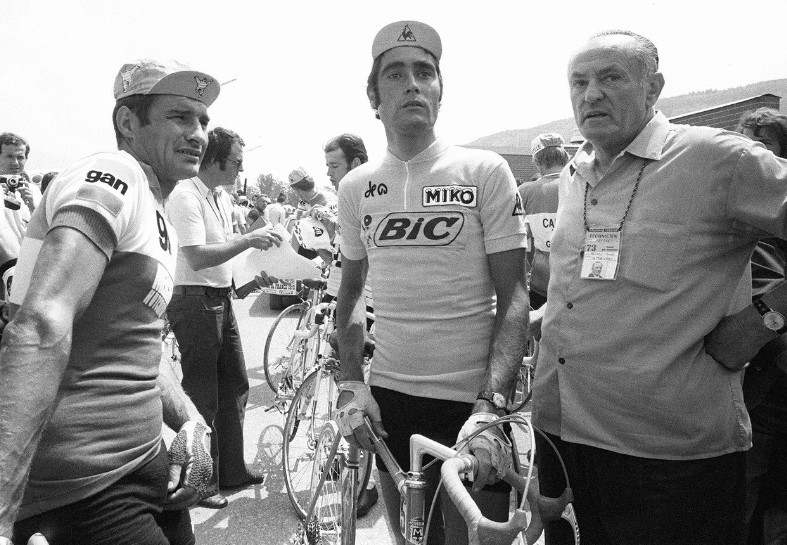History books may claim that the 1971 Tour de France was won by the Cannibal. Indeed, Eddy Merckx was the first cyclist to cross the finish line in Paris for the third consecutive time that year. However, those who followed the race at the time tell a different story. A story of a troubled man who defeated Eddy and made it look easy. That man was Luis Ocaña.
The fragile and always restless cyclist believed himself to be the victim of a curse. This was the only explanation the Spaniard found for not being able to showcase the cycling genius he was sure he possessed to the world. To be fair, Ocaña faced every imaginable problem. He had numerous technical issues, health issues, and unfortunately, even mental health problems. In 1971, however, everything seemed to have fallen into place.

Despite Ocaña’s triumph in La Vuelta the previous year, La Marca complained about the end of an era. It was believed that figures like Bahamontes and Jiménez would never reappear. Instead of focusing on their compatriot, they considered Joop Zoetemelk, Bernard Thévenet, and Lucien van Impe as the biggest threats to Merckx’s hat-trick. The Cannibal, however, knew better.
After the Critérium du Dauphiné, it was Ocaña whom the Belgian praised, stating that he was the only one there not just to try to defeat him but to try to win. This was a common issue in the Cannibal’s generation. He won so many times (one in every three races he entered) that opponents were simply content to fight for second place. But that wasn’t Ocaña’s way.
“Do I fear Merckx? Why would I? If I were afraid, I could just stop racing and go home. I don’t think he’s unbeatable. No one is,” Ocaña defiantly said when questioned by journalists about the Belgian.


